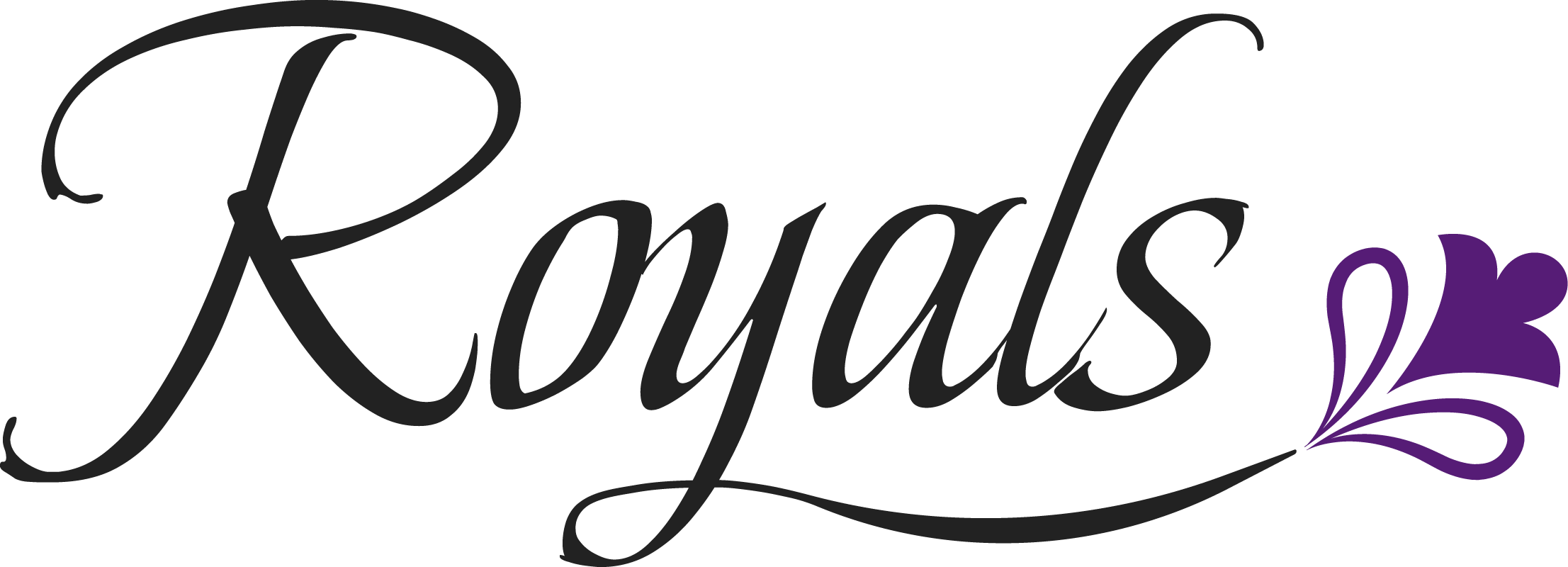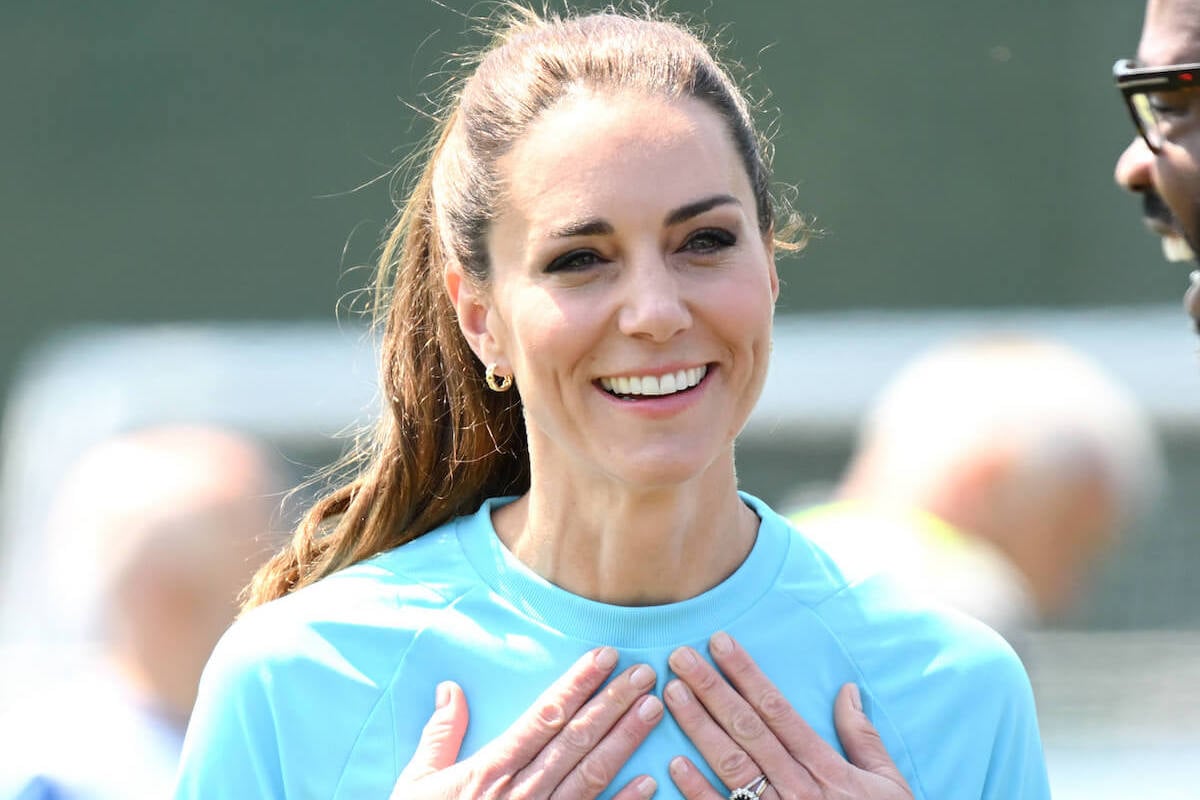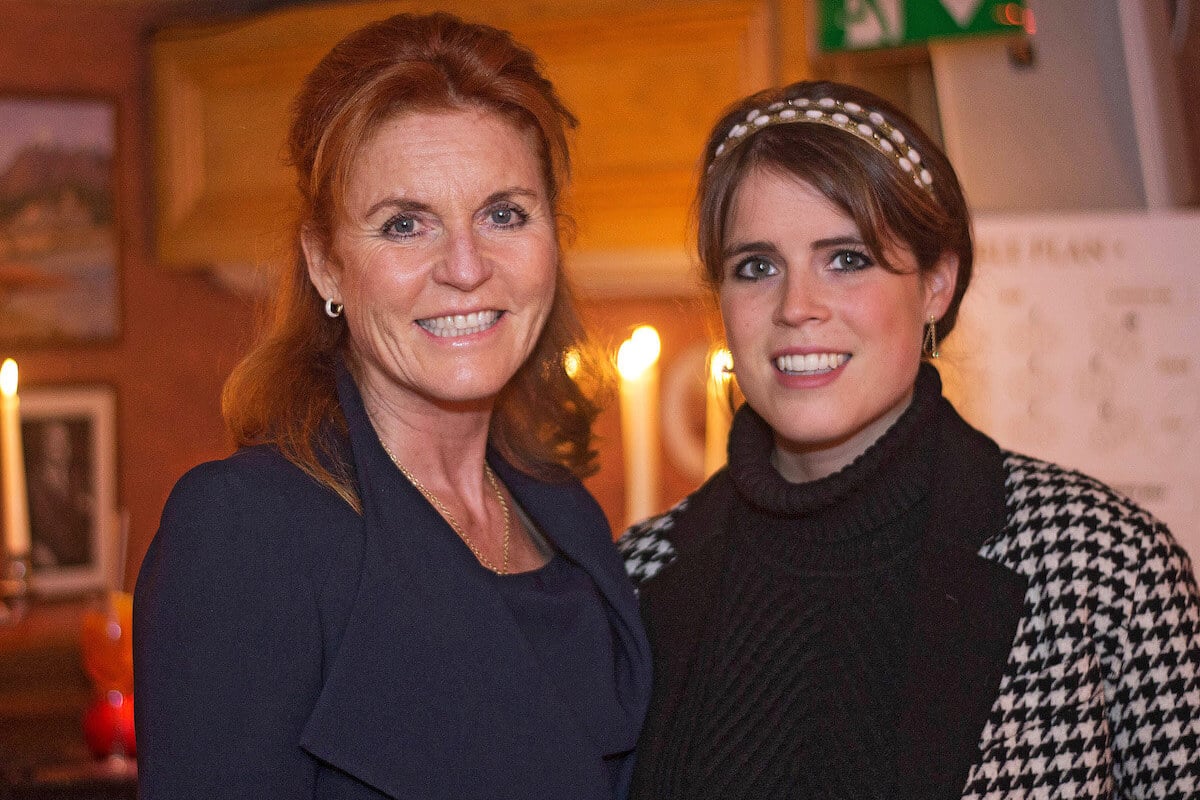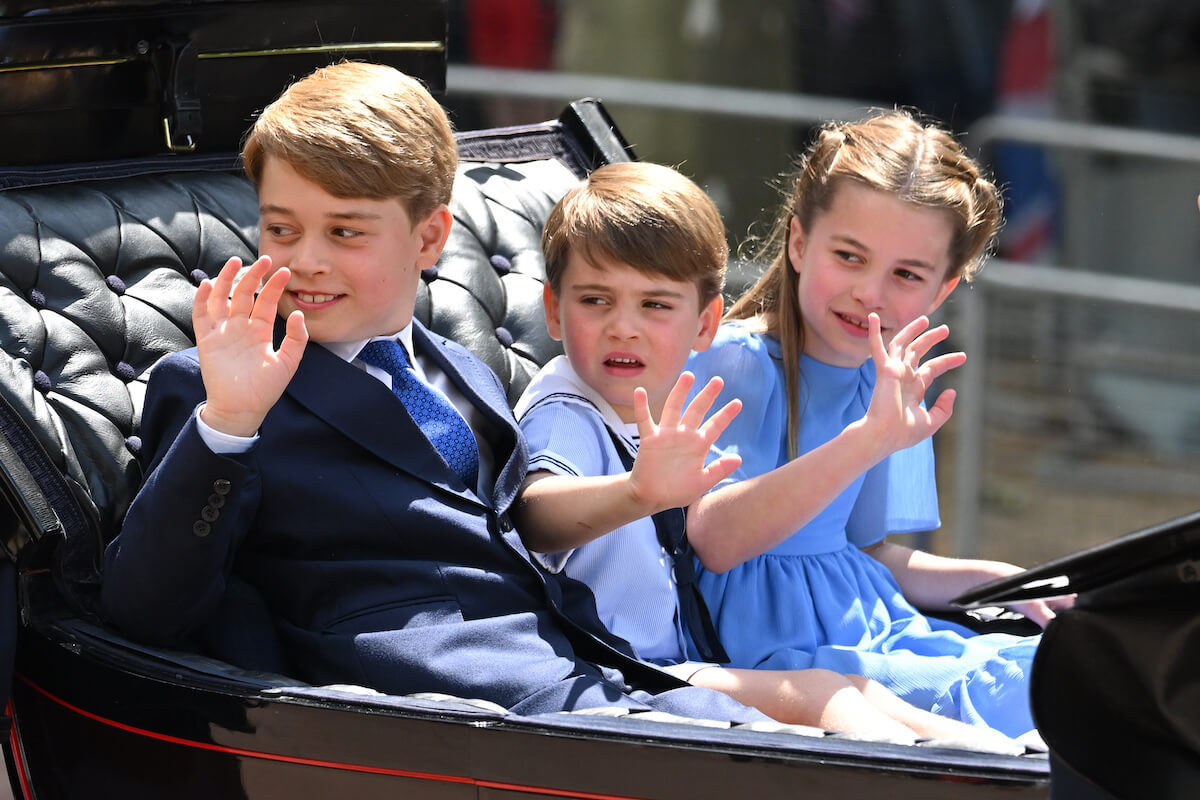
George, Charlotte, and Louis ‘Definitely Have Chores’ and They Keep Track of Them in the Cutest Way
Being royalty doesn’t mean zero responsibilities for Prince George, Princess Charlotte, and Prince Louis. On the contrary, Prince William and Kate Middleton’s three children are said to “definitely have chores.”
William and Kate moved to Adelaide Cottage to give George, Charlotte, and Louis a more ‘normal’ childhood
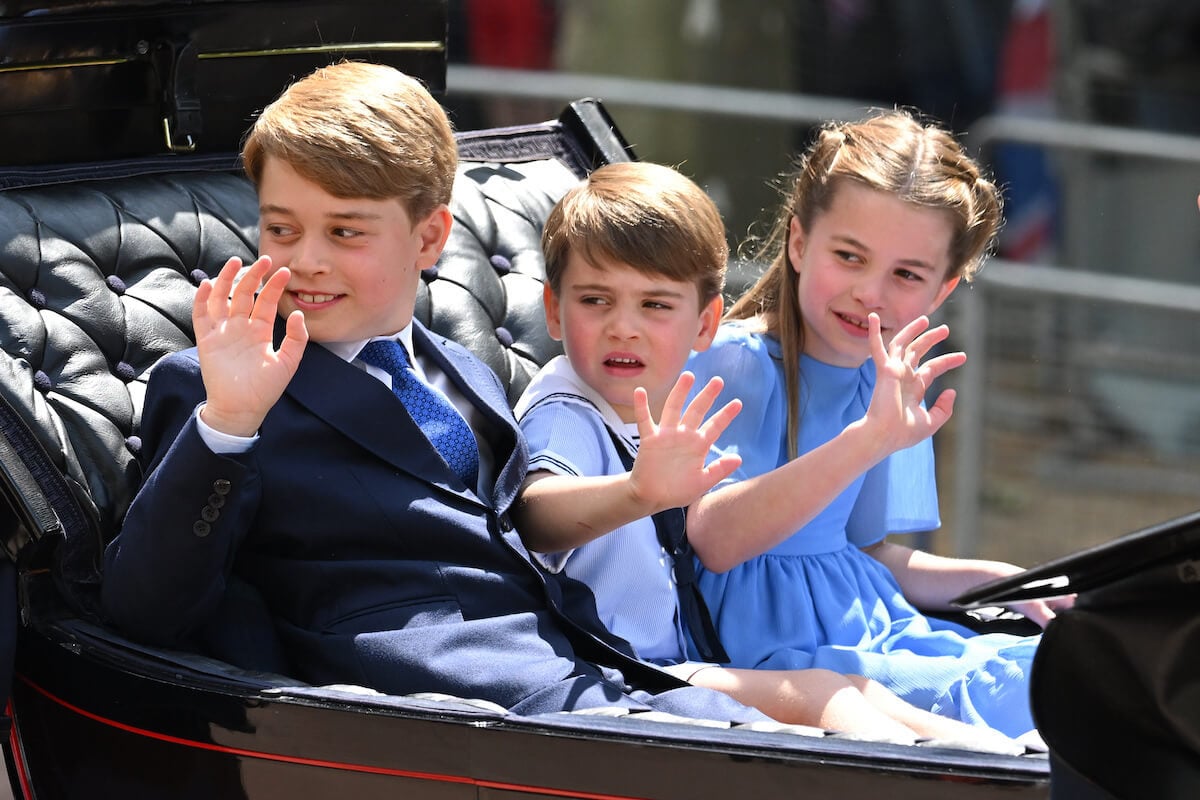
The Prince and Princess of Wales traded the city for more of an English countryside existence in 2022. Today, they call Adelaide Cottage, located in Windsor, England, home. Previously, Kensington Palace’s Apartment 1A served as their primary residence.
Adelaide Cottage sits on Windsor Great Park grounds and is said to be more quaint than Apartment 1A. Read: smaller with four bedrooms. As such, there’s no room for live-in staff. Meaning George, Charlotte, and Louis get a more “normal” childhood, which was reportedly the entire reason behind the move.
Unlike Kensington Palace, the kids have more room to run around and fewer prying eyes compared to the not-so-private Kensington Palace.
Kate has a ‘fun chart’ to track George, Charlotte, and Louis’ chores with ‘gold stars’
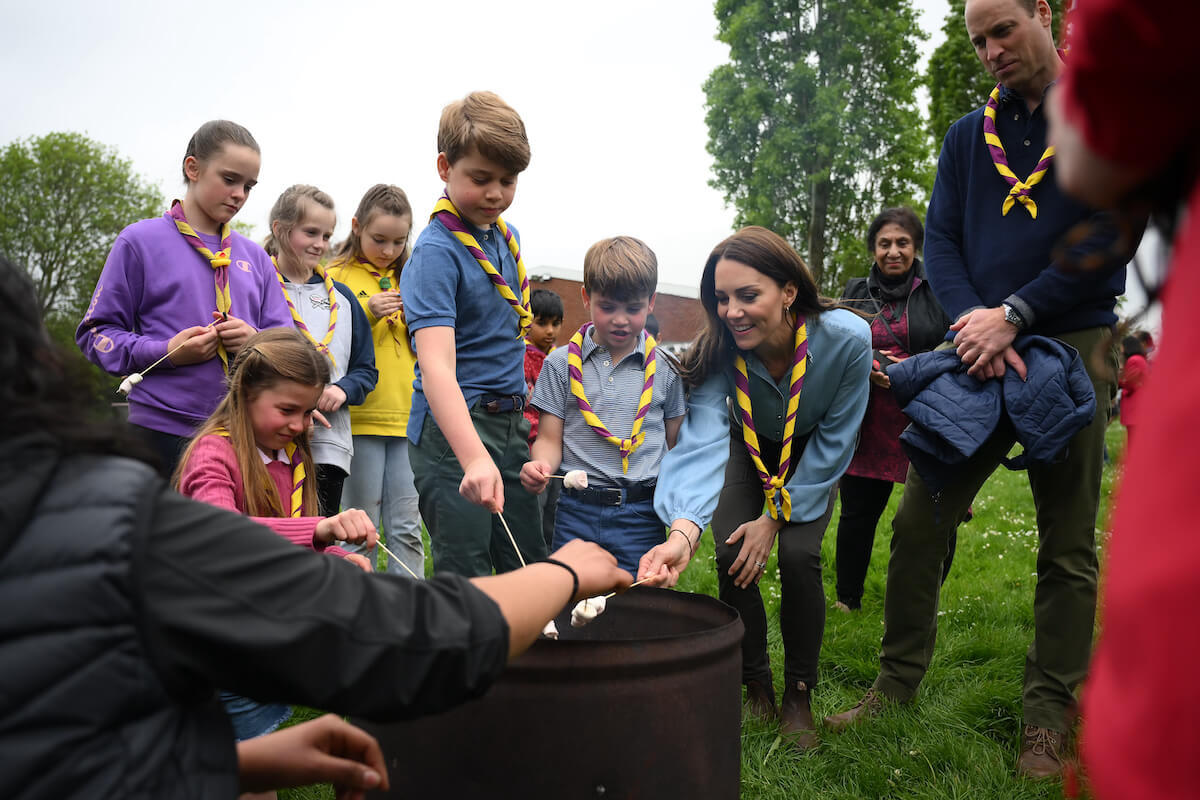
Apparently, royal households aren’t immune to chore wheels, even William and Kate’s. George, Charlotte, and Louis “definitely have chores,” an “insider” told OK! Magazine.
And how do they keep track of said chores? Reportedly with a “fun chart” made by none other than the Princess of Wales.
“Kate has created a fun chart, and the children get gold stars for every task they complete,” the “insider” said. Examples include everything from “making their beds in the morning to filling their dog Orla’s water bowl.”
George, Charlotte, and Louis are also said to have to do their own dishes after dinner. Additionally, they’ve “learned that money doesn’t grow on trees.”
George, Charlotte, and Louis also have a nanny who plays a critical role in their lives
Despite the “normal” elements of their upbringing, William and Kate’s children are still, well, British royalty. As such, there are parts of their lives that aren’t common for most other kids. For instance, they have a nanny.
Maria Borrallo is the longtime nanny to George, Charlotte, and Louis. Having been employed by William and Kate since shortly after George’s birth in 2013, Borrallo is a familiar figure in the family.
According to royal commentator Pauline Maclaran, Borallo’s role is crucial. Trained at a prestigious nannying school, Borallo’s instrumental in making sure George, Charlotte, and Louis grow up to be well-rounded adults.
“I think royal nannies play important roles in the lives of royal children,” Maclaren said (via Express). “Apart from looking after their everyday needs and security, they can also offer a lot of support in developing the children’s cognitive and social skills.”
“Importantly, too, they can offer important emotional support that ensures strong bonds will remain even when the children are adults,” Maclaren added.
Borrallo plays an especially important role in George’s life as he’s William’s heir and currently second in the line of succession.
“It starts now — from the focus on him during the coronation to a lifetime of being in the public eye in a role with rich historical connotations, expectations, and gravitas,” Dr. Ramya Mohan, a child and adolescent senior consultant developmental psychiatrist, said.
George, Mohan explained, will have “to adapt in every aspect of his life in parallel with the pressure of being in the public eye in a more evident, scrutinized manner. For George, that could “feel like a tough tightrope walk on his own, despite access to the considerable, planned support and guidance one can expect.”
